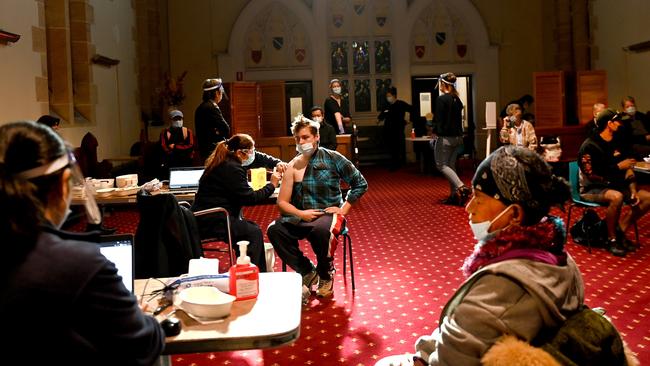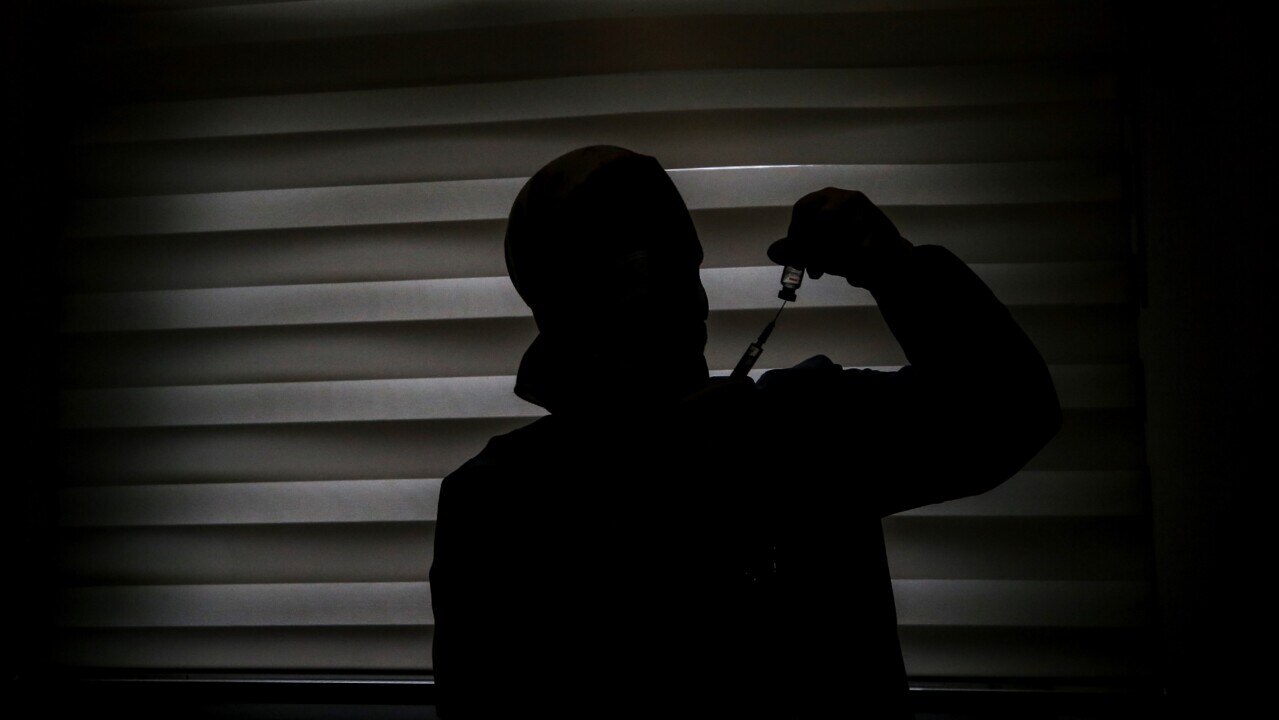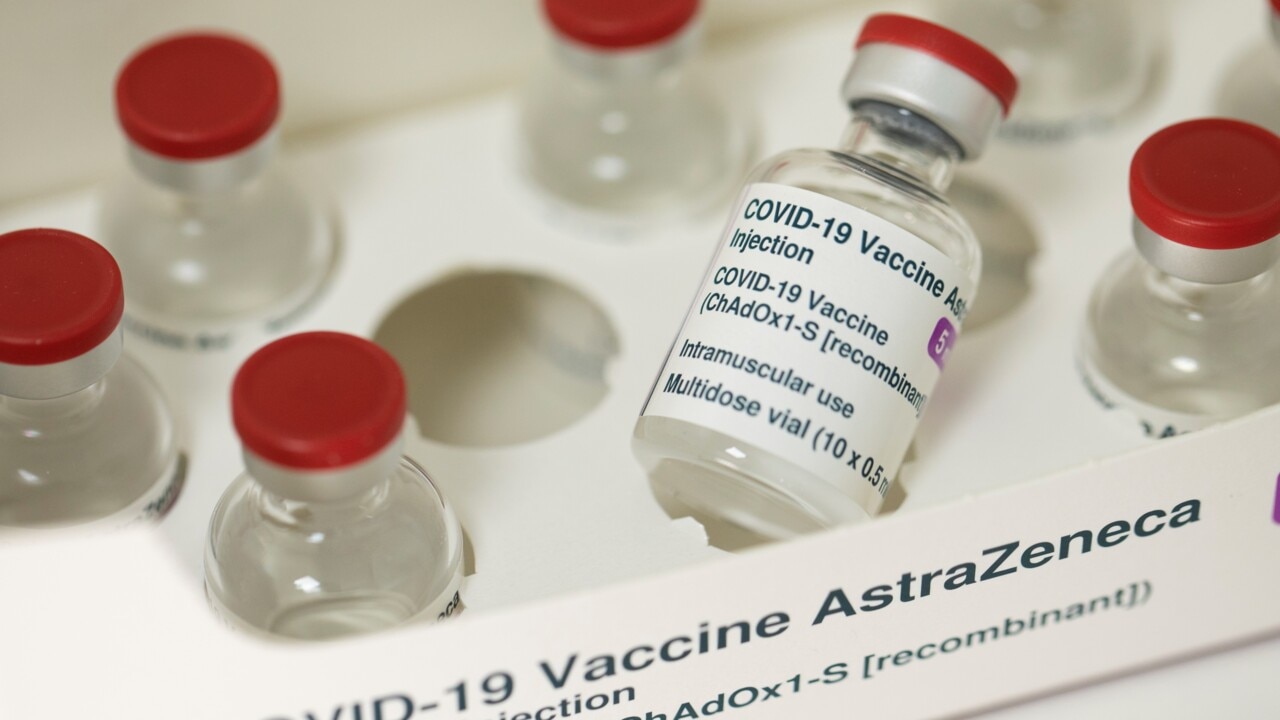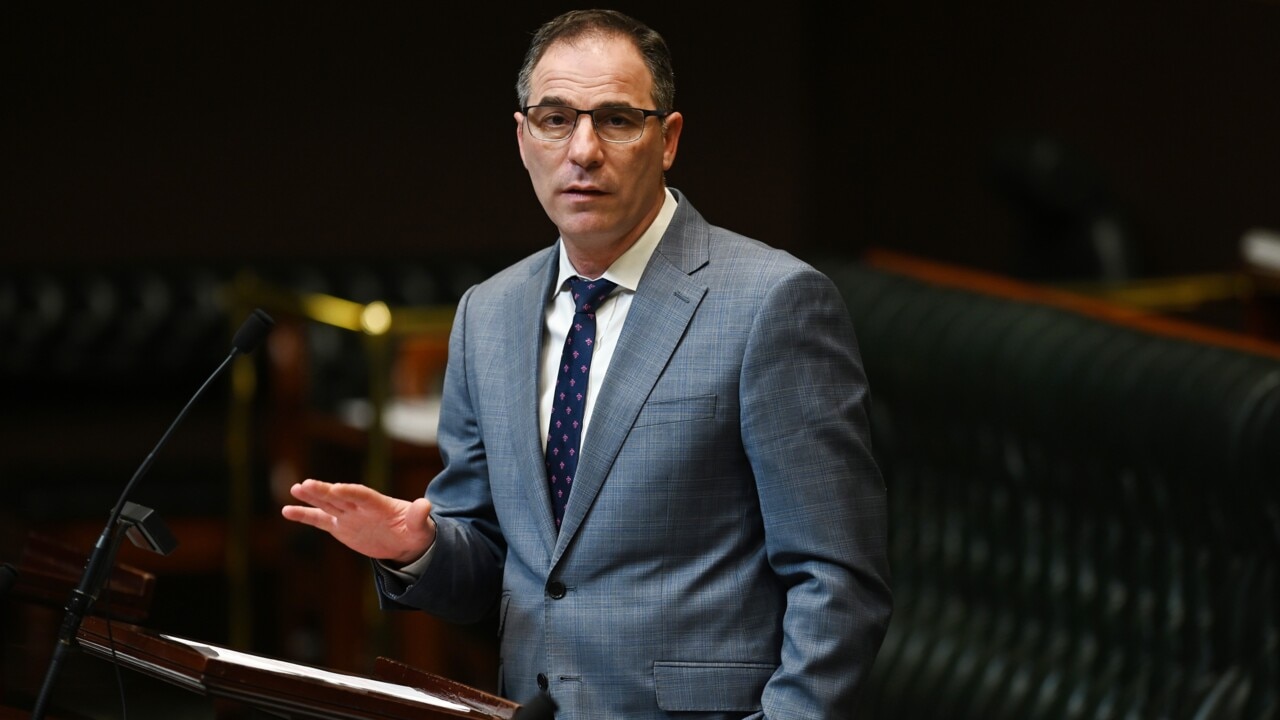Hotspot ‘young’ urged to get AstraZeneca jab
People under 60 in outbreak zones should consider the AstraZeneca vaccine, top immunisation advisers have urged.

The nation’s top advisers on immunisation have urged people aged under 60 in coronavirus outbreak zones to consider being vaccinated with AstraZeneca if they do not have immediate access to Pfizer in another adjustment to the national vaccine rollout.
The Australian Technical Advisory Group on Immunisation has also recommended a shorter interval of between four and eight weeks between first and second doses of AstraZeneca for those in Delta-variant outbreak zones.
The ATAGI said its advice that Pfizer was the preferred vaccine for those aged under 60 remained unchanged, but those aged under 60 living in areas of Covid-19 outbreaks should consider the benefit of being immediately vaccinated with AstraZeneca if they could not access Pfizer.
“In the context of a Covid-19 outbreak where the supply of Comirnaty (Pfizer) is constrained, adults younger than 60 years old, who do not have immediate access to Comirnaty (Pfizer), should reassess the benefits to them and their contacts from being vaccinated with Covid-19 vaccine AstraZeneca versus the rare risk of a serious side effect,” ATAGI said.
The risks presented by the rare but serious blood clotting syndrome that can be triggered by the AstraZeneca vaccine prompted the ATAGI to recommend that vaccine be given only to those aged over 60 while Pfizer was preferred for those under 60.
That advice was based on a risk-benefit equation that took into account the fact Australia had very low case numbers of Covid-19, and zero deaths or hospitalisations. That scenario has now changed, with the NSW Delta outbreak such that the risks posed by the virus for those aged under 60 in outbreak zones is greater than the risk posed by the AstraZeneca vaccine.

The ATAGI says if the AstraZeneca vaccine was widely given to younger people, the estimated incidence of a rare blood clotting event for someone aged 30-39 would be 1.6 cases for every 100,000 AstraZeneca vaccines given. In that age group, the vaccine would not prevent any deaths in a low-incidence environment and would prevent 1.9 hospitalisations and 0.5 ICU admissions.
The risk of hospitalisation and admission to ICU has now increased markedly in NSW hotspot zones, changing the risk-benefit equation. The ATAGI now estimates the current cumulative risk of Covid-19 for residents of Sydney is approximately 10 cases per 100,000 people, and is increasing by two extra cases per 100,000 a day.
“Although overall this is comparable to the Australian first wave (cumulative incidence 29 per 100,000), the ongoing risk would be considerably greater in some parts of Sydney and for specific populations,” the ATAGI said in a statement. “For example, in Fairfield Local Government Area, the cumulative risk to date is greater than 100 per 100,000 and has increased by more than 10 cases per 100,000 a day in the past week.”
The new ATAGI advice comes two weeks after Scott Morrison encouraged those aged under 40 who could not yet access Pfizer to speak to their doctor about the relative benefits of getting an immediate AstraZeneca shot.
Thousands of young people then rushed to get the AstraZeneca vaccine despite the reservations of some chief health officers, in particular Queensland CHO Jeanette Young, who said she did not want to see a young person die of a blood clot after AstraZeneca in Queensland.
At the time, the ATAGI reiterated its advice that Pfizer was the preferred vaccine for those aged under 60. The change of course now means that those aged under 40 in Sydney’s outbreak zones who choose to now receive AstraZeneca will have to wait weeks for any immunity to kick in and provide protection from the spreading Delta variant.

Had the ATAGI’s previous advice taken into account that an outbreak of Covid-19 could occur in Australia at any time, the risk-benefit equation might have been calculated differently.
Its new advice on the dosing interval between first and second shots of AstraZeneca is now in line with the advice of NSW chief health officer Kerry Chant, who urged people to get their second dose six weeks after the first.
Experts have welcomed the advice to shorten the interval between AstraZeneca doses, despite a shorter interval being associated with lower protection against symptomatic disease.
A recent peer-reviewed Lancet study found the AstraZeneca vaccine’s efficacy against symptomatic illness was 81.3 per cent when given 12 weeks apart, but efficacy dropped to 60 per cent when given six to eight weeks apart, and 55.1 per cent when doses were given less than six weeks apart.
However, Robert Booy, who is an expert on vaccinology, said the AstraZeneca vaccine nevertheless conferred a high degree of protection from severe illness and hospitalisation even when given at a shorter interval between doses.
“Whichever interval you have, you get a high level of protection against severe disease,” Professor Booy said.
“At the end of the day, the No. 1 object is to stop people going to hospital and being very ill. And that could be achieved with any interval.”





To join the conversation, please log in. Don't have an account? Register
Join the conversation, you are commenting as Logout